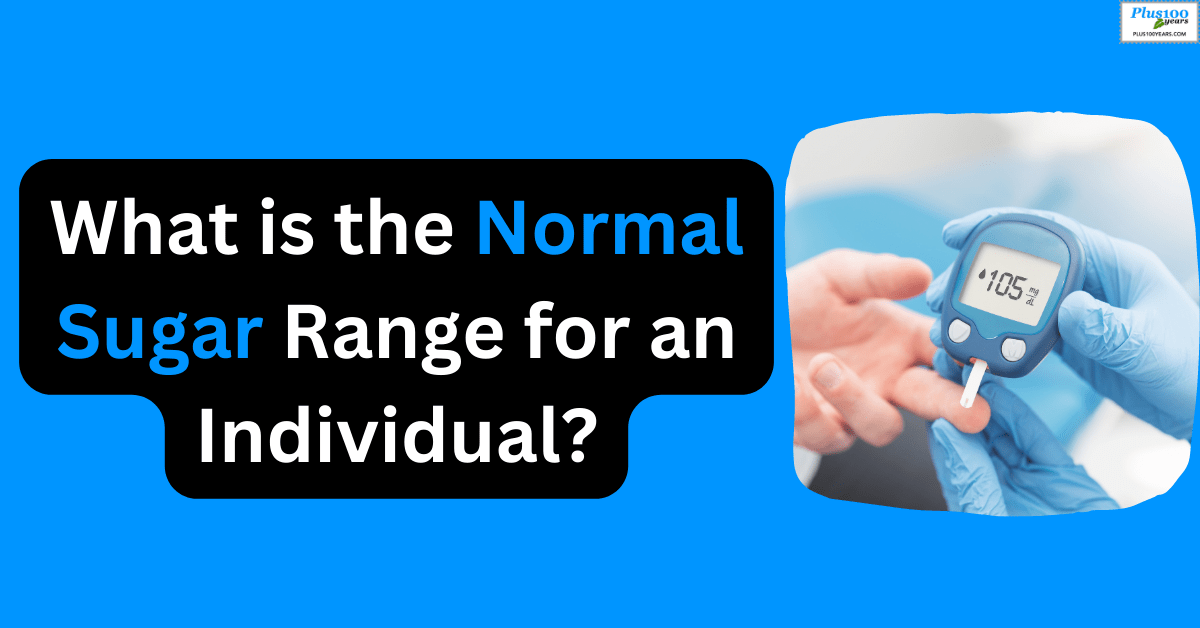
The sugar normal range in an individual is the amount of sugar (or glucose) that is considered healthy for a person to have in their system.
It is measured through fasting blood sugar tests, which measure your body’s glucose levels over a specific period. These results are then compared to a “normal” range determined by age, gender, and other factors.
Normal Range of Sugar in an Individual
According to American Diabetes Association (ADA), a fasting blood glucose level between 90-110 mg/dL (milligrams per deciliter) is normal for most adults.
If you want to know what is normal sugar level by age it depends on many factors age, other health issues, and many.
Fasting blood sugar levels between 110-126 mg/dL are considered pre-diabetic, and anything above 126 mg/dL is considered diabetic.
It’s important to note that the normal ranges for sugar levels may vary depending on age and other factors.
HbA1c: less than 5.7%
For example, children have lower fasting blood glucose than adults, with a normal range of 70-100 mg/dL. Older adults may also have higher ranges, up to 140 mg/dL.
Also Read: Which Sugar Is Best For Diabetic
When to Seek Medical Attention?
If your blood sugar levels are consistently above or below the normal range for your age and gender, you should seek medical advice from a healthcare professional.
They will be able to assess your health and provide information about how to maintain your sugar levels better. You should seek medical advice if you experience any of the following symptoms:
- Frequent urination
- Extreme fatigue
- Blurry vision
- Unusual thirst or hunger
- Slow-healing wounds or sores
- Unexpected weight loss
Following a healthy diet, exercise, and lifestyle changes can help keep your sugar levels within a normal range.
Additionally, it is essential to monitor your blood sugar levels regularly and make any necessary adjustments to ensure that they remain in the desired ranges. If you are concerned about sugar levels, consult your healthcare provider for assistance.
Also Read: Don't Ignore these Diabetes Symptoms In Women
What are the Causes of Diabetes?
Diabetes is a metabolic disorder in which the body does not produce sufficient insulin, leading to higher-than-normal glucose levels in the blood.
It is a major health issue affecting millions of people around the world.
Many factors can lead to diabetes, ranging from genetic predisposition to lifestyle choices.
The following are the main causes of diabetes:
1. Genetics
A family history of diabetes is one of the strongest predictors of developing the condition. People with a parent, sibling, or child with diabetes are at increased risk for the disease.
2. Obesity
Being overweight can increase a person’s risk of developing diabetes. Excess fat tissue can cause cells to become resistant to insulin, resulting in higher blood glucose levels.
3. Lack of Exercise
People who do not get enough exercise are at increased risk for diabetes because physical activity helps the body process glucose more efficiently.
4. Unhealthy Diet
Eating too many processed foods and refined carbohydrates can harm blood sugar levels and lead to diabetes over time.
5. Age
As people age, their bodies tend to produce less insulin, putting them at greater risk for developing diabetes later in life.
6. Improper sleeping patterns
Not getting enough sleep or having poor quality sleep can seriously affect blood sugar levels. An increase in the risk of diabetes is one major consequence that can occur when an individual does not get enough restorative sleep.
Poor sleeping habits can directly affect the body’s ability to perform healthy metabolic functions, disrupting glucose regulation and insulin production.
Strategies like establishing a regular bedtime routine, avoiding caffeine late in the day, and creating a relaxing environment before bed may help improve overall sleep quality and cut this health risk.
7. Stress
Long-term stress can have a negative impact on the body’s ability to regulate blood sugar levels and increase the risk of developing diabetes.
8. Medications
Certain medications, including steroids and some antipsychotics, may make people more susceptible to diabetes by interfering with insulin production or increased appetite.
9. Smoking
Cigarette smoking is associated with an increased risk of developing Type 2 diabetes due to its effect on blood glucose levels and insulin sensitivity.
10. Gestational Diabetes
Women who develop gestational diabetes during pregnancy are at higher risk of developing Type 2 diabetes later in life.
These are just some potential causes of diabetes, and not all people with these risk factors will develop the disorder.
However, understanding these risk factors can help people make lifestyle changes to reduce their risk of diabetes.
Now that you know what are the causes of diabetes, the next step is to understand how it can be managed and what lifestyle changes you can make to help keep it under control.
Conclusion
Diabetes is a chronic medical condition that affects millions of people around the world. It is important to be aware of its potential causes and risks so you can take steps to reduce your chances of developing it.

Add new comment